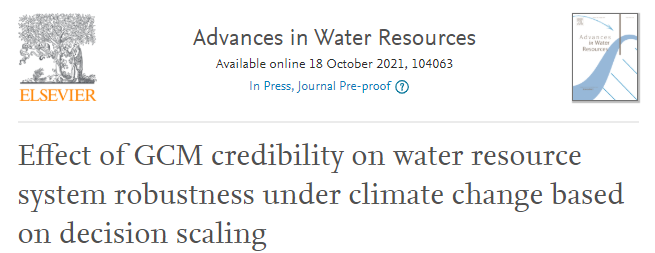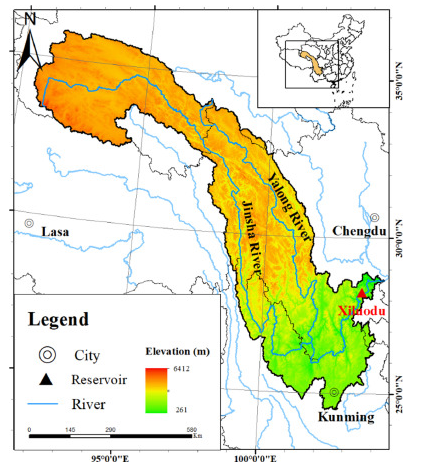

RuikangZhang,LeiCheng,PanLiu,KangdiHuang,YuGong,ShujingQin,DediLiu.Effect of GCM credibility on water resource system robustness under climate change based on decision scaling.Advances in Water Resources.Available online 18 October 2021, 104063.In Press, Journal Pre-proof.
Abstract
Management and planning of water resource systems face great challenges under climate change. Because the magnitude of climate change is highly uncertain, the robustness (i.e., ability to perform satisfactorily over a wide range of possible climate conditions) should be evaluated for water resource systems. However, for climate-informed robustness-based methods, the effects of climate model credibility on water resource system robustness have rarely been explored, and are important for the development of climate change adaptation. The objective of this study was to evaluate the impacts of general circulation model (GCM) credibility for projecting of future climate forcing on water resource system robustness. By stepwise culling of GCM with the lowest credibility, we reduced the number of GCMs from 13 to the three with the highest credibility in order to calculate robustness. In general, 176 numerical modelling experiments were designed using 11 operations of culling GCMs according to credibility, developing two reservoir operation models, and assuming two probability distribution functions (PDFs) under four time periods. The third largest power plant in the world (i.e., the Xiluodu Reservoir (XLD)) was selected as a case study. Results showed that excluding GCMs with lower credibility resulted in higher robustness for XLD because GCMs with higher credibility used to calculate robustness tended to be located in the acceptable subregion of the climate change space. The results of this study demonstrated the significance of GCM credibility on water resource system robustness and decision making. Ignorance regarding GCM credibility may lead to over- or under-estimation of water resource system robustness, leading to biased climate change adaptation decisions. Additionally, the number of GCMs should be large enough to prevent almost all GCMs from being located in a single subregion of the climate change space to account for uncertainty in projected future climate forcing.
